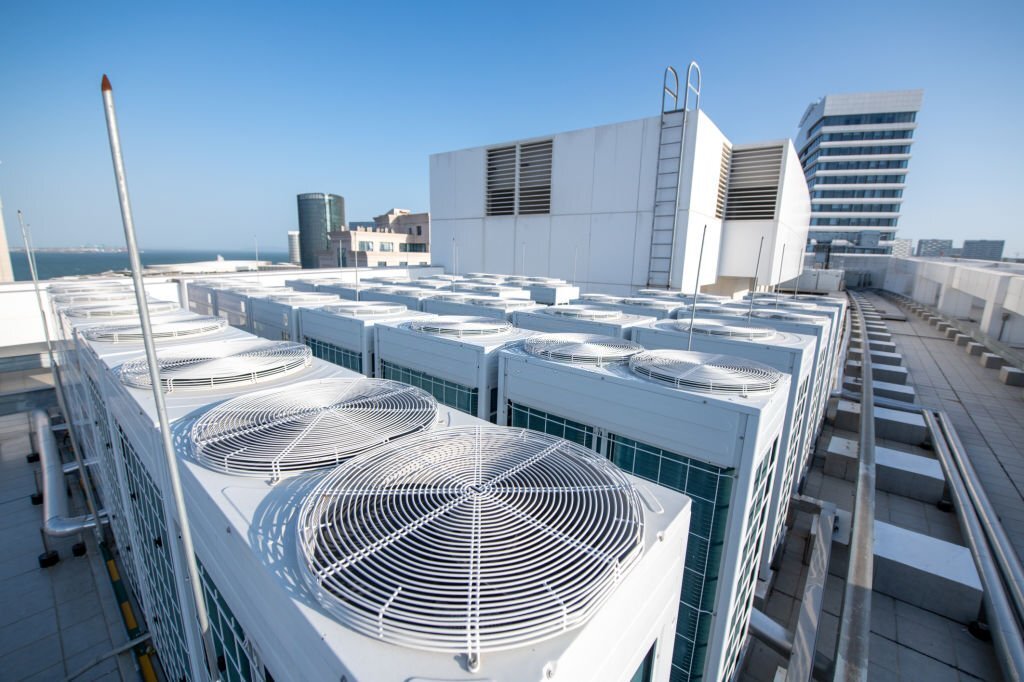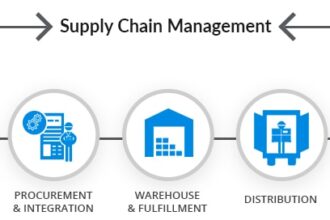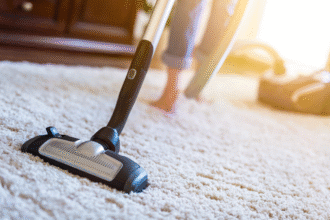When people walk into a mall, hospital, or office tower, they don’t think about the systems behind the scenes. But every time the lights turn on, the air feels fresh, or the plumbing works without a hitch, there’s a team responsible. Commercial mechanical contractors are the problem-solvers who design, install, and fix the systems that keep big buildings running. From heating to cooling, ventilation to piping, these experts ensure everything flows right.
- The Role of Commercial Mechanical Contractors in Large Buildings
- Why large facilities need skilled mechanical contractors
- Common issues in large mechanical installations
- Smart solutions mechanical contractors offer
- Fixing and Replacing Old Mechanical Systems
- Staying Up to Code and Safe
- Meeting Special Demands in Sensitive Environments
- Why Maintenance Contracts Matter
- Mechanical Contractors and Energy Efficiency
- Smart Building Tech and the Future of Mechanical Systems
- Conclusion
- FAQs
This article dives into the world of commercial mechanical contracting—why it matters, where problems usually start, and how good contractors fix them fast and smart.
The Role of Commercial Mechanical Contractors in Large Buildings
Why large facilities need skilled mechanical contractors
Big buildings come with big needs. Hospitals, airports, factories, and shopping centers all rely on complex systems to stay open and safe. Commercial mechanical contractors help install, manage, and upgrade systems like HVAC, plumbing, and boiler rooms.
Without them, indoor air wouldn’t circulate, machines wouldn’t stay cool, and water wouldn’t flow properly.
Common issues in large mechanical installations
Mechanical problems can pop up quickly in big spaces:
- Air doesn’t reach every corner due to bad duct planning
- Plumbing clogs or leaks from outdated pipes
- Equipment overloads due to poor system sizing
These issues cost time, energy, and money—sometimes even safety.
Smart solutions mechanical contractors offer
Experienced contractors use BIM modeling and project planning to prevent problems early. They design systems that match the building’s size and needs, which helps avoid breakdowns and saves on repairs. They also work with electricians, engineers, and architects to get the job done right.
Fixing and Replacing Old Mechanical Systems
Problems that come with aging systems
Many buildings in the U.S. still use old boilers, chillers, and ducts that were put in decades ago. As time passes, these systems:
- Use more energy
- Break down often
- Fail to meet current building codes
This leads to rising bills and more frequent service calls.
How commercial contractors handle upgrades
Contractors do full inspections before making changes. They figure out what to keep, what to replace, and how to upgrade without shutting down operations. For example, in a busy hospital, upgrades might happen in stages to avoid disrupting patient care.
Modern systems are quieter, safer, and more energy-efficient. Many also qualify for energy rebates or tax incentives.
Staying Up to Code and Safe
What happens when a building isn’t code-compliant?
Cities like New York, Chicago, and Los Angeles have strict rules. If a building isn’t up to code, it can:
- Get hit with fines
- Lose insurance coverage
- Be denied occupancy permits
Code violations often come from things like improper venting, bad pipe materials, or not having enough airflow in workspaces.
How contractors help meet code
Commercial mechanical contractors stay updated with building laws. They install systems that meet OSHA, ASHRAE, and local codes. They also help building managers prepare for inspections.
Some even use digital monitoring tools to track system health and alert teams before something breaks.
Meeting Special Demands in Sensitive Environments
Problems unique to hospitals and cleanrooms
Not all spaces are built the same. Places like:
- Laboratories
- Pharmaceutical plants
- ICUs and operating rooms
have strict rules on temperature, humidity, and air purity. Even tiny changes in air pressure can put people or products at risk.
Custom systems to handle special conditions
Mechanical contractors install HEPA filters, positive-pressure rooms, and back-up chillers for high-risk zones. These keep harmful particles out and make sure patients, chemicals, or electronics stay safe.
They also train the staff on how to use and monitor these systems properly.
Why Maintenance Contracts Matter
What can go wrong without regular maintenance?
When businesses skip service checks, small issues turn into big problems:
- HVAC units freeze up during summer
- Boilers overheat in winter
- Pipes burst without warning
This downtime affects customers, workers, and revenue.
Preventive service plans from contractors
Contractors offer maintenance contracts that include:
- Seasonal tune-ups
- Filter replacements
- Emergency on-call support
These plans catch problems early, so buildings run smoother for longer. For busy places like schools or hotels, this kind of support is a lifesaver.
Mechanical Contractors and Energy Efficiency
The cost of running old systems
Older systems waste energy every minute they run. This leads to:
- Higher electric bills
- Poor indoor air quality
- Greater impact on the environment
Especially in places where utilities cost more, energy waste adds up fast.
Solutions that lower energy use
Contractors now install energy-efficient HVACs, low-flow fixtures, and smart thermostats. These tools adjust automatically based on room use or time of day. Some buildings even add solar water heaters and geothermal systems to cut costs further.
With less waste, businesses save money and reduce their carbon footprint.
Smart Building Tech and the Future of Mechanical Systems
Why smart buildings need smart contractors
Today’s commercial spaces are more connected than ever. Systems talk to each other using IoT (Internet of Things). This lets building managers control everything from one screen.
But installing these tools takes a skilled contractor who understands both mechanical systems and digital tech.
Innovations mechanical contractors now use
Many now offer:
- Remote system monitoring
- Automated leak detection
- Data dashboards showing energy use in real-time
This tech helps building owners fix issues before tenants notice them. It also supports green certifications like LEED or WELL Building Standard.
Conclusion
Commercial mechanical contractors are the behind-the-scenes heroes of big buildings. From keeping temperatures just right to making sure clean air flows through every room, their work affects everyone who walks through the door.
They don’t just fix problems—they stop them from happening. They build smarter, greener, and safer systems for the future. Whether it’s a new skyscraper or an old high school, a good mechanical contractor keeps everything running smoothly.
So the next time you feel cool air on a hot day or flush a toilet in a crowded stadium, remember: there’s a skilled contractor making sure that moment works just right.
FAQs
What does a commercial mechanical contractor do?
They handle designing, installing, and maintaining mechanical systems like HVAC, plumbing, and ventilation in large buildings.
How often should commercial systems be serviced?
Most systems should be checked seasonally, with deeper inspections at least once a year to prevent breakdowns and ensure efficiency.
Are commercial contractors required to follow codes?
Yes, they must meet national and local building codes like ASHRAE standards and OSHA safety rules to ensure proper system performance and safety.
Can mechanical contractors help reduce energy costs?
Absolutely. They can install energy-efficient systems, add smart controls, and recommend upgrades that reduce overall utility expenses.

















